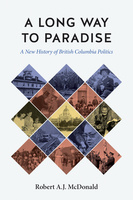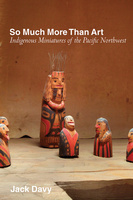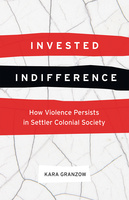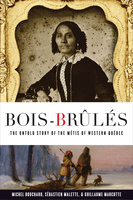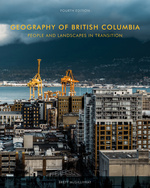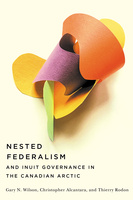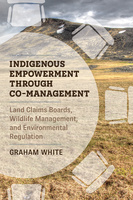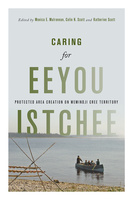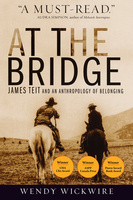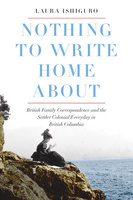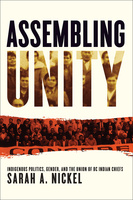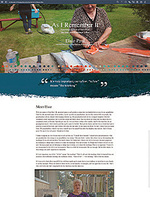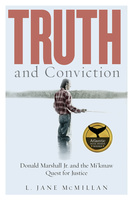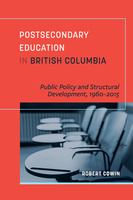A Long Way to Paradise
A New History of British Columbia Politics
A Long Way to Paradise is a lively account of the personalities and ideas that shaped the first hundred years of BC politics and created one of Canada’s most fractious and dynamic political scenes.
So Much More Than Art
Indigenous Miniatures of the Pacific Northwest
So Much More Than Art reveals the fascinating practice of miniaturization in Indigenous Northwest Coast art as a subtle form of communication in the face of oppressive colonization.
The Government of Natural Resources
Science, Territory, and State Power in Quebec, 1867–1939
The Government of Natural Resources is a revealing look at how science can extend state power through territorial and environmental transformations.
Frontiers of Feminism
Movements and Influences in Québec and Italy, 1960–80
Frontiers of Feminism shines new light on the recent history of feminist movements, using the examples of Italy and Québec to bring an international perspective to major themes, strategies, and modes of organizing.
Invested Indifference
How Violence Persists in Settler Colonial Society
Invested Indifference exposes the tenacity of violence against Indigenous people, arguing that some lives are made to matter – or not – depending on their relation to the settler-colonial nation state.
A Great Revolutionary Wave
Women and the Vote in British Columbia
The first book on the woman’s suffrage movement in British Columbia, A Great Revolutionary Wave traces the history of the fight for the vote from the 1870s to the 1940s against a backdrop of social reform, international social movements, labour politics, and settler colonialism.
Bois-Brûlés
The Untold Story of the Métis of Western Québec
Bois-Brûlés shatters the prevailing orthodoxy that Métis communities are found solely in western Canada by demonstrating that a distinct community emerged in the fur trade frontier of Quebec in the early nineteenth century and persists to this day.
Geography of British Columbia, Fourth Edition
People and Landscapes in Transition
This extensively revised edition of Geography of British Columbia teaches students how to think like geographers as it takes them on a journey from the origins of the region’s diverse and unique landscapes to its more recent history as a province being reshaped by the forces of globalization.
Nested Federalism and Inuit Governance in the Canadian Arctic
Nested Federalism and Inuit Governance in the Canadian Arctic explores how three northern regions are reformulating the relationship between Indigenous peoples and the state, and transforming Canadian federalism in the process.
Indigenous Empowerment through Co-management
Land Claims Boards, Wildlife Management, and Environmental Regulation
This book is a clear, compelling, and evidence-based assessment of the effectiveness of co-management boards in providing Indigenous peoples with genuine influence over land and wildlife decisions affecting their traditional territories.
Caring for Eeyou Istchee
Protected Area Creation on Wemindji Cree Territory
In Caring for Eeyou Istchee, Indigenous and non-Indigenous partners reveal how protected area creation presents a powerful vehicle for Indigenous stewardship, biological conservation, and cultural heritage protection.
In the Spirit of ’68
Youth Culture, the New Left, and the Reimagining of Acadia
In the Spirit of ’68 tells the story of how a unique blend of local circumstance and global influence transformed Acadian New Brunswick’s youth culture, spawning one of the most influential revolutionary student movements in Canada.
Duty to Dissent
Henri Bourassa and the First World War
This revisionist account of Henri Bourassa’s writings and times reshapes our understanding of why Quebec diverged from the rest of Canada when it came to war.
Moments of Crisis
Religion and National Identity in Québec
Wide-ranging and theoretically sophisticated, Moments of Crisis offers a groundbreaking explanation for why religion continues to be implicated in national identity crises in Québec.
At the Bridge
James Teit and an Anthropology of Belonging
At the Bridge lifts from obscurity the story of James Teit (1864–1922), an outstanding Canadian ethnographer and Indian rights activist whose thoughtful scholarship and tireless organizing have been largely ignored.
Nothing to Write Home About
British Family Correspondence and the Settler Colonial Everyday in British Columbia
The first substantial study of family correspondence and settler colonialism, Nothing to Write Home About elucidates the significance of trans-imperial intimacy, epistolary silence, and the everyday in laying the foundations of settler colonialism in British Columbia.
Assembling Unity
Indigenous Politics, Gender, and the Union of BC Indian Chiefs
Assembling Unity traces the history of pan-Indigenous unity in British Columbia through political negotiations, gendered activism, and the balance and exercise of power.
As I Remember It
Teachings (Ɂəms tɑɁɑw) from the Life of a Sliammon Elder
Meet Elder Elsie Paul and discover her stories, family history, and teachings – ʔəms tɑʔɑw – in a multimedia, online book that captures the wit and wisdom of her storytelling.
Truth and Conviction
Donald Marshall Jr. and the Mi’kmaw Quest for Justice
A passionate account of how one man’s fight against racism and injustice transformed the criminal justice system and galvanized the Mi’kmaw Nation’s struggle for self-determination, forever changing the landscape of Indigenous rights in Canada and around the world.
Postsecondary Education in British Columbia
Public Policy and Structural Development, 1960–2015
Postsecondary Education in British Columbia is a thoughtful critical analysis of the role of social justice, human capital, and the market in the development of institutions and public policy in BC education since 1960.

